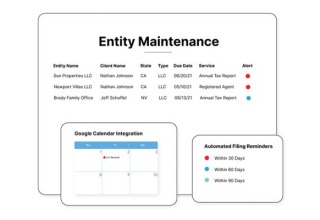
In most cases, an individual would not be able to work for their entire lifetime, and at a point, there comes a certain age when a person has to retire. However, financial freedom plays a role in making your retirement a comfortable experience. With ample finances, retirement would be more pleasant.
Many people delay and procrastinate when it comes to the idea of financial planning, and contrary to what many believe, retirement isn’t a bridge to cross when you get there; it’s a journey you need to start preparing for in advance. And your younger years are the ones that will determine what your post-retirement life looks like.
There are many ways to go about this, as there are multiple streams of income an individual can establish in their working years that can prove beneficial when the time to retire comes. This article sheds light on some tips for a better post-retirement life.
- Consider A Reverse Mortgage
“A reverse mortgage is an option many people are opting for. However, at the same time, some are also unfamiliar with the concept, and the first thing that comes to mind is, ‘How does a reverse mortgage work.’ More importantly, it makes them question if it would add value toward a more financially secure retirement,” says reverse.mortage, a leader of reverse mortgage originations.
In short, a reverse mortgage helps citizens earn money through their home’s equity. The money received against this equity can be used for almost anything. It could be living expenses, paying off other loans, etc. The best part about reverse mortgages is that one can borrow this loan without making any mortgage payments. The borrower’s age, current interest rates, and the home’s value determine the loan amount.
One can take funds in any form. It could be monthly payments, a lump sum, a line of credit, or even a hybrid model that combines these. The repayment model is quite simple. The loan is paid when the borrower or their last of kin passes on or permanently vacates the home. If the home’s value exceeds that of the loan, the remaining equity goes to the borrower or their heirs. If the loan exceeds the property’s value, the debt will not pass on, as reverse mortgages are non-recourse. Reverse mortgages work as a trade-off, so one should consider one’s financial situation before using this option.
- Evaluating Your Financial Condition
The most important thing before retirement is evaluating your financial condition; this means evaluating all your assets and investments to know your overall net worth. It would give you a better idea of where you stand from a financial point of view.
Also, consider your current expenses to find areas that require improvement. Studying your financial circumstances will give you a comprehensive idea of where you will stand in the coming years, and it will set the course for your retirement plans. You can also seek professional assistance to maintain accuracy during the evaluation process.
- Setting Goals
Defining your retirement goals is vital says Money Fit since it will ensure they align with the financial plan you have set out for yourself. Think about the lifestyle that you want to have after you retire. It should include hobbies and other things you want to enjoy after retirement. Furthermore, it would help if you also took into factors like:
- Healthcare
- Living costs
- Discretionary activities
Keep in mind that the goals that you set should be specific and achievable. With a well-defined set of retirement goals, you can build a roadmap for your financial journey. Also, it is vital to review and adjust your plans according to the changing circumstances.
- Make Budgets
Making budgets is vital for effective financial planning. This is why you should go for a detailed budget encompassing pre- and post-retirement expenses. Next, you should check the expenses and ensure they align with your financial plan.
Most importantly, eliminating or reducing unnecessary expenses is something to focus on. You should direct the money saved from these expenses toward investments and savings. Regularly reviewing your budget is also essential to compensate for changes in expenses or income.
- Think of Creating Retirement Accounts
Establishing retirement accounts early on to maximize savings is an optimal move. Try options like Individual Retirement Accounts (IRAs) or employer-sponsored 401(k)s. These can allow you to take advantage of tax benefits while your potential employer can match your investments.
An important thing to remember is that one should consistently start these investments in retirement accounts as early as possible. Doing so will lead to optimal returns over time, thanks to compounded interests.
- Think of Diversifying Investments
Keeping all your assets in a single basket is never smart, according to Forbes; the same goes for your investments. Consider diversifying your investments by opting for multiple options, such as investing in bonds, stocks, real estate, etc.
Factor in your risk tolerance and time horizon when diversifying your portfolio, as this will allow you to achieve an accurate balance with your portfolio diversification efforts. Also, it is essential to review and rebalance your investments regularly. Doing so will allow you to maintain the desired asset allocation. This approach helps mitigate the impact of market fluctuations on your portfolio. Diversification protects your retirement savings from potential downturns, fostering financial resilience. Furthermore, it optimizes the chances of achieving a secure and prosperous retirement.
Retirement can have a different meaning for a lot of people. Some might sell a lucrative business for a reasonable price and retire at 35, while others might wait till 65. Either way, the aim should be to have sufficient funds to help you sustain your current standard of living.
A comfortable retirement is only possible if you start planning for it early. With the help of the tips mentioned in this article, you can start your retirement planning on the right course. With the right financial plan, you can enjoy your retirement with less worry and greater financial freedom.
Last Updated: September 28, 2023




















